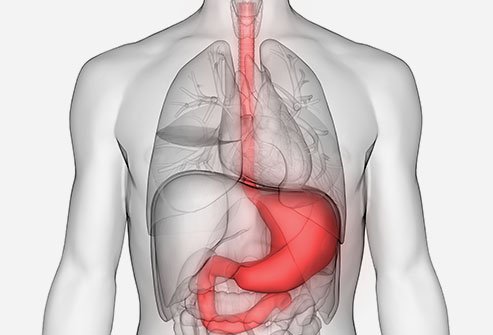What Causes GI Bleeding?

Gastrointestinal (GI) bleeding is usually a symptom of an underlying medical condition. Possible causes may include:
- Hemorrhoids (piles)
- Peptic ulcers
- Tears or inflammation in the esophagus
- Diverticulosis (development of small, bulging pouches called diverticula in the digestive tract)
- Diverticulitis (inflammation or infection of the diverticula)
- Ulcerative colitis
- Crohn’s disease
- Colonic polyps
- Liver failure
- Cancer of the colon, stomach, or esophagus
What causes upper vs. lower GI bleeding?
Causes of GI bleeding can be divided into two categories: upper or lower, depending on the location in the GI tract.
Common causes of upper GI bleeding include:
- Peptic ulcers
- Gastritis (bleeding in the stomach)
- Esophageal varices (abnormal, enlarged veins in the esophagus) secondary to portal hypertension
- Cancer
- Inflammation of the GI lining from ingested corrosive materials (suicide attempt)
- Mallory-Weiss tears (tears in the lining of the esophagus) due to a severe vomiting episode
Common causes of lower GI bleeding include:
- Diverticulitis
- GI cancer
- Inflammatory bowel disease (Crohn’s disease, ulcerative colitis)
- Infectious diarrhea
- Angiodysplasia (swollen, fragile blood vessels in the colon)
- Colon polyps (small clumps of cells that form on the lining of the colon leading to GI bleeding)
- Hemorrhoids
- Anal fissures (small tears in the lining of the anus)
- Proctitis (inflammation of the lining of the rectum)
- Tumors (Benign or cancerous tumors of the esophagus, stomach, colon or rectum can weaken the lining of the digestive tract and cause bleeding.)
What causes minor vs. severe GI bleeding?
Causes of minor GI bleeding include:
- Hemorrhoids
- Anal fissures or tears
Causes of more severe GI bleeding include:
- Ulcers
- Cancer (anywhere along the GI tract)
- Polyps
- Inflammation in the GI tract such as esophagitis, gastritis or colitis
- Variceal bleeding, typically caused by liver damage
- Inflammatory bowel disease (Crohn’s disease, ulcerative colitis)
- Angiodysplasia
- Diverticulosis
- Meckel’s diverticulum (a bulge in the lower part of the small intestine)
- Mallory-Weiss tears
- Trauma
What other factors can trigger GI bleeding?
Other factors that can trigger conditions causing a gastrointestinal (GI) bleed include:
- Use of nonsteroidal anti-inflammatory drugs (NSAIDs) and other medicines that cause gastritis
- Infections such as travelers’ diarrhea, amebiasis, or tuberculosis
- Severe injuries to the GI tract or chest or abdominal trauma
- Constipation and straining during bowel movements
- Alcohol-induced liver failure or gastritis
- Burns
- Liver cirrhosis
- Forceful coughing or laughing
- Lifting or straining
- Childbirth
- Cigarette smoking
- Helicobacter pylori infection
- Chronic vomiting
- GI surgery
Why does GI bleeding occur?
- In upper GI bleeding, stomach acid or bacterial/viral toxin can irritate the esophageal lining to the point of bleeding.
- Severe retching may cause tears in the lining of the upper GI tract causing blood in vomitus.
- Portal hypertension due to liver failure or splenic vein thrombosis may cause bleeding in the esophageal vascular system or rectal blood vessels.
- In lower GI bleeding, straining and passing hard or wide stools can injure the rectal lining and cause bleeding.
- Polyps are finger-like overgrowths of the lining of the intestine that may bleed when the stools rub against them.
- Diverticulosis is a condition where pouches develop in the lining of the intestine and bleed due to trauma.
- Any type of cancerous mass anywhere in the GI system may rupture, causing bleeding.
